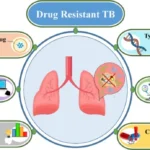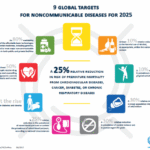While Sustainable Development Goal (SDG) 3 focuses specifically on health and well-being, achieving its ambitious targets is inextricably linked to progress across the entire 2030 Agenda. Health equity – ensuring that everyone has a fair and just opportunity to be as healthy as possible – serves as a critical driver for achieving not only SDG 3 but also goals related to poverty reduction, education, gender equality, decent work and economic growth, and reduced inequalities. Addressing health inequities is not just a moral imperative; it is a fundamental requirement for realizing the transformative vision of the SDGs.
Health inequities manifest in various forms, with disparities in health outcomes observed across socioeconomic status, geographic location, gender, ethnicity, and other social categories. These inequities are often rooted in systemic disadvantages and unequal access to the social determinants of health – the conditions in which people are born, grow, live, work, and age. Factors such as poverty, lack of education, unemployment, inadequate housing, food insecurity, and exposure to environmental hazards significantly influence health outcomes and contribute to health inequities.
The link between health equity and poverty reduction (SDG 1) is clear. Poor health can trap individuals and families in a cycle of poverty by reducing their ability to work, earn income, and access education. Conversely, poverty can increase the risk of poor health due to factors such as malnutrition, inadequate sanitation, and limited access to healthcare. Addressing health inequities is therefore essential for breaking this cycle and achieving sustainable poverty reduction.
Education (SDG 4) and health are also closely intertwined. Healthier children are more likely to attend school and learn effectively, leading to better educational outcomes and future opportunities. Education, in turn, can empower individuals with the knowledge and skills to make informed decisions about their health and advocate for healthier environments. Reducing health inequities can therefore contribute to achieving equitable access to quality education and improving educational attainment.
Gender equality (SDG 5) is another crucial aspect of health equity. Women and girls often face unique health challenges and barriers to accessing healthcare services. Addressing gender-based violence, ensuring access to sexual and reproductive healthcare, and empowering women economically are essential for improving their health and well-being and achieving gender equality across all spheres of life.
The relationship between health equity and decent work and economic growth (SDG 8) is also significant. A healthy workforce is more productive and contributes to economic prosperity. Reducing health inequities can lead to a healthier and more engaged workforce, boosting economic growth and creating opportunities for decent work for all.
Furthermore, addressing health inequities is central to reducing inequalities within and among countries (SDG 10). By ensuring that all individuals have a fair opportunity to achieve good health, regardless of their background or circumstances, we can work towards creating more just and equitable societies.
Achieving health equity requires a comprehensive approach that addresses the social determinants of health. This includes implementing policies that promote economic and social justice, reduce poverty and inequality, improve access to education and housing, ensure food security, and protect the environment. Strengthening primary healthcare systems and ensuring universal access to quality healthcare services, with a focus on the needs of marginalized populations, are also crucial.
Multisectoral collaboration is essential for tackling the root causes of health inequities. Governments, civil society organizations, the private sector, and communities need to work together to create healthier and more equitable environments. Empowering communities to participate in decision-making processes and addressing their specific needs and priorities are also vital for achieving health equity and progress across the SDGs.
In conclusion, achieving health equity is not just a goal in itself but a fundamental driver for progress across the entire 2030 Agenda. By addressing the social determinants of health and ensuring that everyone has a fair and just opportunity to be healthy, we can create more just, equitable, and sustainable societies and accelerate progress towards the realization of all the Sustainable Development Goals.
















